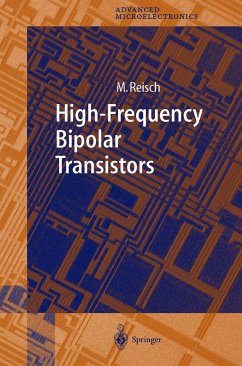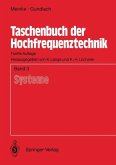This modern book-length treatment gives a detailed presentation of high-frequency bipolar transistors in silicon or silicon-germanium technology, with particular emphasis placed on today's advanced compact models and their physical foundations.
This book provides a rather comprehensive presentation of the physics and modeling of high-frequency bipolar transistors with particular emphasis given to silicon-based devices. I hope it will be found useful by those who do as well as by those who intend to work in the field, as it compiles and extends material presented in numerous publications in a coherent fashion. I've worked on this project for years and did my best to avoid errors. De spite all efforts it is possible that "something" has been overlooked during copy-editing and proof-reading. If you find a mistake please let me know. Michael Reisch Kempten, December 2002 Notation It is intended here to use the most widely employed notation, in cases where the standard textbook notation is different from the SPICE notation, the latter is used. In order to make formulas more readable, model parameters represented in SPICE by a series of capital letters are written here as one capital letter with the rest in the form of a subscript (e.g. XCJC is used here instead of the XCJC used in the SPICE input). Concerning the use of lower-case and capital letters, the following rules are applied: - Time-dependent large-signal quantities are represented by lower-case let ters. The variables 't, v and p therefore denote time-dependent current, voltage and power values.
This book provides a rather comprehensive presentation of the physics and modeling of high-frequency bipolar transistors with particular emphasis given to silicon-based devices. I hope it will be found useful by those who do as well as by those who intend to work in the field, as it compiles and extends material presented in numerous publications in a coherent fashion. I've worked on this project for years and did my best to avoid errors. De spite all efforts it is possible that "something" has been overlooked during copy-editing and proof-reading. If you find a mistake please let me know. Michael Reisch Kempten, December 2002 Notation It is intended here to use the most widely employed notation, in cases where the standard textbook notation is different from the SPICE notation, the latter is used. In order to make formulas more readable, model parameters represented in SPICE by a series of capital letters are written here as one capital letter with the rest in the form of a subscript (e.g. XCJC is used here instead of the XCJC used in the SPICE input). Concerning the use of lower-case and capital letters, the following rules are applied: - Time-dependent large-signal quantities are represented by lower-case let ters. The variables 't, v and p therefore denote time-dependent current, voltage and power values.









